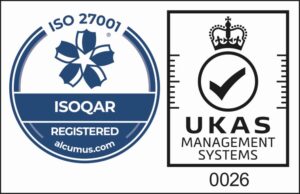IT MSPs and IT Governance Frameworks: Driving Accountability and Alignment with Business Objectives
In today’s digital landscape, effective IT governance is crucial for businesses to align their IT activities with strategic objectives, ensure accountability, and drive overall performance. This is where IT Managed Service Providers (MSPs) play a vital role. MSPs specialize in IT governance frameworks, helping organizations establish and implement robust governance practices that drive accountability and alignment with business objectives. Let’s explore the role of MSPs in IT governance frameworks and the benefits they bring to businesses:
Framework Selection and Implementation
MSPs assist businesses in selecting and implementing appropriate IT governance frameworks such as COBIT (Control Objectives for Information and Related Technologies), ITIL (Information Technology Infrastructure Library), or ISO/IEC 38500. They assess the organization’s needs, industry requirements, and strategic objectives to determine the most suitable framework. MSPs guide businesses in the implementation process, ensuring that governance practices are effectively integrated into their IT operations.
Alignment with Business Strategy
MSPs work closely with businesses to align IT activities with strategic objectives. They assess the organization’s business goals and translate them into actionable IT initiatives. MSPs ensure that IT investments, projects, and processes are aligned with the overall business strategy, enabling effective resource allocation and priority setting.
Policy and Process Development
MSPs assist businesses in developing IT policies, procedures, and processes that support governance objectives. They establish clear guidelines and standards for IT operations, security, risk management, and compliance. MSPs help organizations define roles and responsibilities, set performance metrics, and establish control mechanisms to ensure adherence to policies and procedures.
Performance Measurement and Reporting
MSPs help businesses establish performance measurement frameworks and reporting mechanisms to track the effectiveness of IT governance practices. They define key performance indicators (KPIs) and implement tools to monitor and report on governance-related metrics. MSPs generate regular reports that provide insights into IT performance, compliance, and risk management, enabling informed decision-making at both operational and strategic levels.
Risk Management and Compliance
MSPs assist businesses in implementing risk management frameworks and ensuring compliance with regulatory requirements and industry standards. They help identify and assess IT-related risks, develop risk mitigation strategies, and establish controls to mitigate those risks. MSPs assist with compliance audits, internal controls, and ongoing monitoring to ensure that governance practices are effective and aligned with legal and regulatory obligations.
Vendor and Supplier Management
MSPs play a crucial role in managing relationships with IT vendors and suppliers. They help businesses select and onboard vendors, negotiate contracts, and ensure that vendor performance aligns with governance requirements. MSPs monitor vendor service levels, assess contract compliance, and provide guidance on optimizing vendor relationships to maximize value and mitigate risks.
Continuous Improvement and Best Practices
MSPs stay updated with industry best practices, emerging technologies, and regulatory changes. They provide guidance on continuous improvement initiatives and help businesses adopt best practices within their IT governance framework. MSPs assist in identifying areas for improvement, conducting gap analysis, and implementing process enhancements to drive efficiency and effectiveness.
Board and Executive Reporting
MSPs support businesses in reporting IT governance activities to the board and executive management. They provide relevant data, metrics, and insights that enable decision-makers to assess the effectiveness of IT governance practices and make informed strategic decisions. MSPs facilitate communication between IT and the executive level, ensuring that IT governance is integrated into the overall business strategy.
By partnering with IT MSPs for IT governance frameworks, businesses can drive accountability, alignment, and performance within their IT operations. MSPs bring expertise in governance frameworks, processes, and best practices, helping organizations establish a solid governance foundation. MSPs ensure that IT activities are aligned with business objectives, risks are managed effectively, and compliance requirements are met. Ultimately, MSPs enable businesses to optimize their IT governance practices, leading to improved decision-making, operational efficiency, and overall business success.




